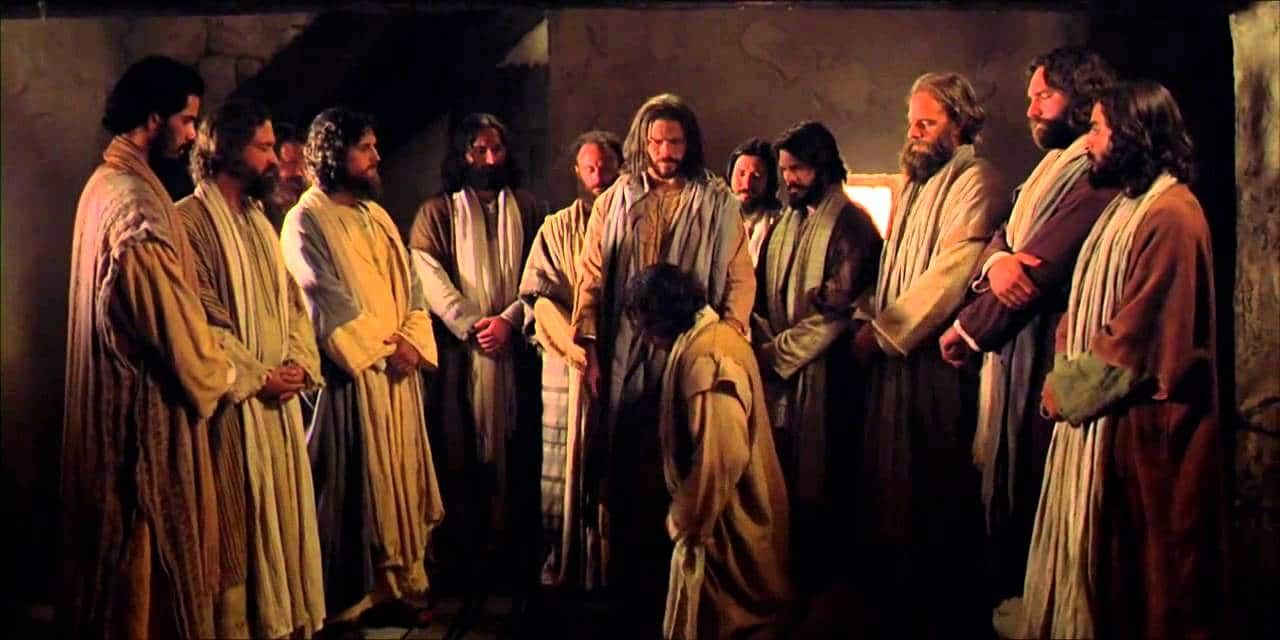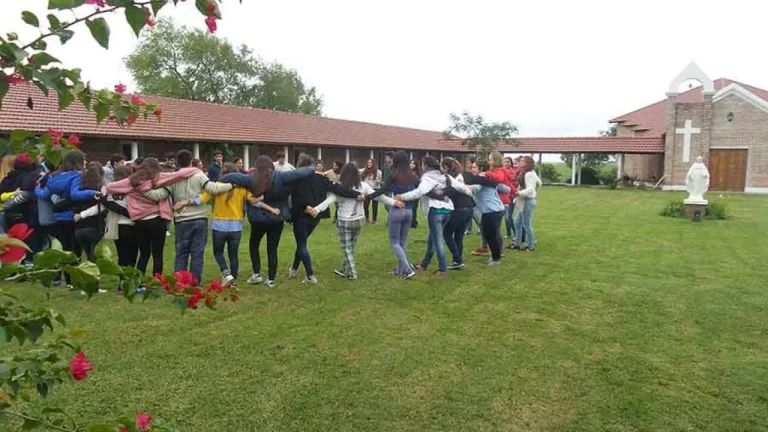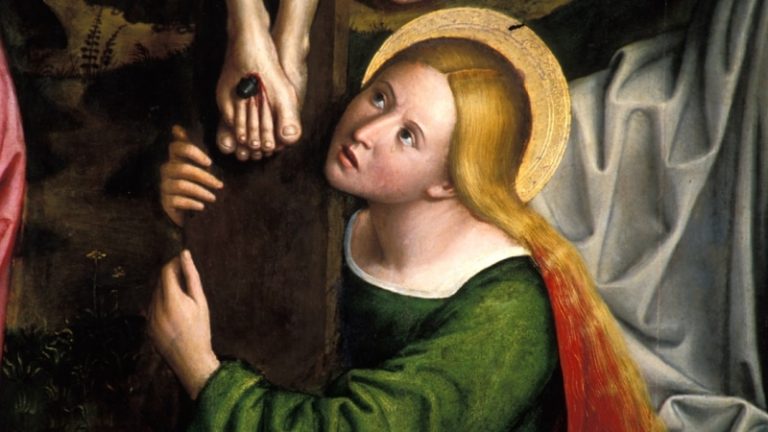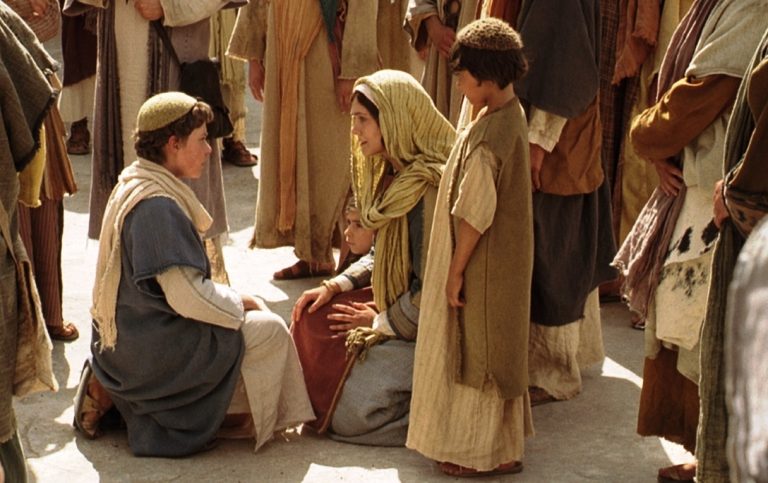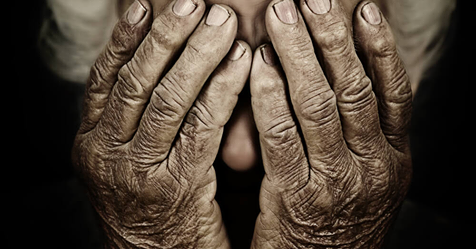What are Christian Persecutions? History
Since the death of the Great Messiah, the faithful and humanity in general have been affected by Christian persecution , events that have caused, over time, greater division and radicalism in terms of behavior and interpersonal dealings, as well as a greater boom to the persecutions of Christianity .
Beginning of the Christian Persecutions
The people in the world who have accepted Almighty God have faced many difficulties through the centuries regarding the continuous mistreatment and persecution ruled by those rulers and people who do not practice the doctrine of Christianity. In this sense, when dealing with this painful but interesting topic, it is necessary to understand that these repressive movements began with the death of Jesus Christ, mainly because of the power that it gives people. Related to this, we invite you to visit our article Ecumenism: Relationship with Christianity
Dying on a cross taking responsibility for the innumerable sins committed by humanity and rising from the dead has been the greatest act of love that anyone has done, being among the world, a fact that credited him with remaining forever in memory. and in the hearts of all, beyond the fact that he was spat on, flogged until he was disfigured, blamed and condemned to the maximum penalty of crucifixion.
Among those faithful, the first to suffer in a great way the stalking and punishments for believing in God was Esteban. The unjust punishment they gave him for devoutly professing the teachings of Christ was to be stoned, as far as possible from the city, until he died. When this situation occurred, everyone who loved and believed in The Messiah would be destined to suffer an equal or worse fate, through hostile persecution.
As a consequence, the next to be persecuted and tortured to death were the apostles, the greatest disciples of Christ. The Roman empire was against losing the domain it exercised over the people, both for divine beliefs and for basic activities of life, and the arrival of a being with greater power, capable of guiding people, instructing them, making them understand that there was only one God to praise, it was not something they could allow in their bosom.
In this way, the Christian persecutions formally begin , the first persecuted being the older brother of the apostle John, Santiago, who in the year 44 after Christ (AD) was beheaded by the hand of the Roman empire. The next of this group was Felipe, who was imprisoned and crucified in the year 54 AD for spreading the teachings and great reflections of the Gospel in the north of the Asian continent.
Following this dark period for the faithful, Mateo dies in Nadabah in the year 60 AD, by a halberd that was nailed to his body, who preached in Ethiopian lands and was like the tax collector Then they attacked one of the authors of the biblical epistles, James the Less, stoned to death at the hands of the Jewish people at the age of ninety-four, while preaching in a church in Jerusalem to others persecuted like him, as well as to the poor and sick.
In that order, he was followed by Matías, who died in a stoning to be beheaded, being in life the substitute apostle of Judas. Added to this sad list was the brother of the apostle Peter, Andrew, who died in Edessa when he was crucified in a different way from Christ, because of the way the cross was arranged, who dedicated himself to expressing and expanding his testimony in an important part of the Asian continent. The expression “Cruz de San Andrés” is given by the torture of this person and the cross.
Among those affected in the persecutions of Christianity is Mark, who dies by being vilely dragged and dismembered by a part of the people of Alexandria, who in life was the personal writer of the apostle Peter and convinced by himself to practice the Christian doctrine . The most faithful disciple of Jesus, Peter, was sent for by Nero with the aim of killing him. Because of the great love and respect he had for the Messiah, he asked to be crucified in the reverse way in which he died.
Other great characters who suffered torture, and on repeated occasions it was Paul, constantly harassed, who by Nero’s orders was flogged, stoned and finally slit with a sword. Another great disciple who died crucified in Edessa in the year 72 AD, was Judas, known as Tadeo, who was the brother of Santiago.
While the Christian persecutions persisted, they continued to assassinate those who preached, like Bartholomew, who was vilely beaten and crucified. Continuing with the chronological order of events, the next one was Thomas, the unbeliever, killed because the sinful priests ordered him to be killed, being pierced with a spear and who in life represented Christ in Hindu lands and in Parthia.
The next to die at the hands of the stalking was Lucas, who on his last day ended up hanging on an olive tree at the hands of fanatical priests and during his existence on earth he was busy preaching in various countries of the world.
In the penultimate place of this list, was Simon, crucified in the year 74 AD, for his great commitment to communicate and teach the gospel in African, English and Mauritanian lands, who in life was also known as “The Zealot”. Finally, it was John, the last persecuted disciple, who escaped unharmed from dying in boiling oil, although he was later banished to the island of Patmos. He and Nerva, the successor of Domitian, were the only ones who did not die at the hands of the Christian persecutions .
Biblical facts about the stalking of Christians
According to what the New Testament says, the first Christians, including Jesus himself, were constantly persecuted by the Roman Empire, until the arrival of Constantine, and many of the Jewish leaders who ruled in that period, naming among that important group Peter, John and Ananias, who were imprisoned by the order of the powerful Jews, however, the latter was released.
It should be noted that they were taken into custody by order of the Sadducean priests and people, however, they were removed from that place by an angel according to what is referred to in Acts 5:19-20, which expresses verbatim:
19- “But an angel of the Lord, opening the prison doors at night and taking them out, said:
20- “Go and stand up in the temple, announce to the people all the words of this life”
After having had divine help to leave that place, they traveled and arrived before the Sanhedrin, but this time Gamaliel, who was a Pharisee rabbi, persuaded the latter to let them go free (Acts 5:27-40). It is believed that the main reason for the “hunt” was because they believed that Christianity promoted the use of spells, witchcraft and the occult, practices that went against traditional Jewish beliefs, in addition to entrenching the belief or idea of a God-Man.
In this regard, the Romans believed that the practice of this doctrine, in addition to the non-stop arrival of the King of the Jews, could cause insurrections on the part of the people, of the collective; the Jews could make their own decisions within their government, although in a limited way, being the highest leaders of the Jewish community obliged to collect taxes for the empire and thus maintain calm among civilians, also suppressing any Christian activity that was insurgent.
The Jews who opposed Christianity ended up being great allies for Rome and promoted the philosophy of rejecting the doctrine in a radical way, to the end that whoever believed in it was seen in a contemptuous way and later persecuted and punished. One of the first to experience the consequences of mistreatment in his own flesh was Esteban, remaining with the first martyr in the history of religion, appearing in the New Testament how he died being stoned (Acts 6: 8-7: 60).
This terrible death led to a greater number of believers in the teachings of Christ being vilely stalked, captured and put in prison, according to what is expressed in the Bible, in Acts (Chapter 8, Verses from 1 to 3), activity which was ordered by Saul of Tarsus. According to the Holy Scriptures, this trap culminated until Paul (Saul, before becoming Jesus Christ), expresses himself about the fact that the Messiah has shown him a light and a message that he heard.
According to what was found in Acts (Chapter 9, Verses from 23 to 25), it is detailed that death would be inescapable for Paul if he arrived in Damascus, since a group of Jews were waiting to assassinate him at the entrance to that town. After the announcement of prevention that Jesus gave him, he was able to avoid it when he fled to Jerusalem, counting on the help of other Christians, who prevented an undue execution from occurring.
It was not easy for Paul to change the opinion of the citizens who lived in Jerusalem about him, who maintained a certain suspicion, even after converting to Christianity, according to the fact that at some point he was their enemy and intended to capture them, however, people sympathized with Paul when he also had an arrest warrant and was being persecuted, according to what is written in Acts (Chapter 9, Verses 26 to 27). It was not the only risk he faced.
Opinion of Suetonius and Tertullian on the persecutions
In the perspective of the great historian Suetonius, The Messiah was the great person in charge of the raids in Rome, who was known in the period where Claudius ruled as “Chrestus”, who in his real meaning was Christ, as well as a group of insurrectionary Jews who promoted the teaching of divine miracles and the way in which one should live respecting a single God, who was mortal.
It was simply unacceptable for that time. In the same way, in the annals of the stories told by Tacitus, there appears a man who is called “Christ” and who was one of the great problems that Nero faced at that time; Suetonius, speaks in his work entitled “Life of the Twelve Caesars”, that, during the reign of the latter, the radicalization of the Roman Empire and part of its inhabitants towards Christianity occurred, where he threatened the death penalty to those who will challenge
Within this order of ideas, the philosopher Tertullian in the year 200 AD, implied in his speech of praise to those affected (Apology) and noble people, the penalties of which Christians were blamed, being very little. of them true, referring among some of them that they met at night and ate little children, using their blood to soak the bread and gobble it up, eating a piece of that bread each.
Other of the “impure acts” that Christians committed in the dark were that some dogs were ready to eat the pieces of bread, previously wet with the blood of the murdered infant and that, culminating with the little ones, they were capable of raiding the dwellings of families and seek that the sister and the mother suffer the same and painful fate as the child. In the opinion of the philosopher, even when there was no certainty if these acts were true, the Senate was not interested in corroborating it.
In chapter 7 of his “Apology” it appears that the noble or rejected people (Christians) practiced strange and mysterious rites of Eastern culture, very similar to those of Samos and Elesius, which were based merely on sorcery, the mysteries of Egypt , from Persia, precisely in Mitra, the secrets of Isis and the mysteries of Cibeles. Concept that had certain acceptance of the academics of that time, who debated the moral and ideological principles of that current.
In the following video you will be able to appreciate the 10 persecutions of Christians in the Roman Empire:
Within this order of ideas, Tertullian also affirmed that it was customary for emperors, as a measure of control over the population, to erect statues of themselves, where they proclaimed themselves universal heroes and supreme gods, holding a title of lord, which the commoners , civilians and the entire government of Rome had to recognize and respect, in addition to bowing at least once a day to the statue or kneeling, no matter what city they were in or if it was not their practice.
The Christians, in this regard, strengthened their trust and faith in him, considering him as the King of Kings and the only true son of God the Father Almighty, a belief that the Romans rejected. As a measure to maintain dominance, that invaluable resource that they did not want to lose, they established regulations so that if Christians were caught they would be severely punished instead of being judged by their moral and ideological criteria, and they were considered insurgents of the empire.
This resulted in a large number of Christian persecutions and great discontent in a part of the opposition Jewish people, based on the fact that the government did not respect their rights as citizens. In a simpler way, it is understood that any ideology contrary to the Roman guidelines, which were practiced, would be considered risky and direct threats, seeking to protect the elites of Rome, as well as the famous “status quo” that they had fought to maintain for ages. .
Another idea that is easy to understand, according to what Tertullian relates, is that the doctrine of Christianity was based on equality among human beings before the eyes of the one and only God, in which some of the ideas of divine filiation was that “everyone we are children of the same father” (God), as well as the allegation that “the smallest action that the person could do to another, would be equivalent to doing it to him”, beliefs that were in the sense of the slave society that Rome wanted to keep in time.
In this perspective, there was the belief that one had to get rid of the material and strengthen the spirit, as well as not give importance to the accumulation of wealth, being also capable of placing the goods at the total disposal and that they were at the order of the community based on strong need. All these ideas were revolutionary, so much so that they managed to cause panic among the highest authorities of the empire, thanks to the fact that there was a large poor and humble population.
Emperors of the Roman Empire who rejected Christianity
In short, the free practice of Christianity within Roman territory was unacceptable, illegal and a certain death sentence, this being the reason for hiding from the regime, holding meetings in the abandoned catacombs of Rome, however there are versions that denied the fact that all encounters were limited to a single specific site; the house of believers was used and these seats were identified with the symbol of the Ichthys Fish (Jesus Christ, great in Jesus Christ, Savior).
In view of the uncertainty generated by not knowing the true whereabouts of the Christians, the emperors in each of their periods, increased the inclement siege against them under the firm belief that they would endanger the mental and physical health of the group, knowing that the real reason for the trap was that they were afraid of losing the status and power they enjoyed. Within the era of the Roman Empire, before Constantine, there were emperors who promoted hostility.
Nero
It is believed that it is one of the most popular and relentless and perhaps the youngest is the one originated by the indestructible Nero, according to whom the legend of his command of the fire that ended several poor places in the city of Rome originated. The great historian, Cornelius Tacitus, wrote at the beginning of the second century that before the biggest rumor that the fire had spread by order from above, he found in the Christians the collectors of information who, in principle, took care of the anger that the people accumulated. . They were harshly repressed, according to the writer.
Suetonius, another brilliant early second-century writer of the new history, checks the version, noting that among some of Nero’s great projects was understood to be “capturing the Christians.” This would be one of the reasons that led believers like Paul or Peter to the completion of Rome, which Clement I, a Christian writer, dealt with in his works during the first century.
domitian
One of the emperors who is remembered for the evil and mistreatment given to Christians in general, was Domitian, who between the years 81 and 96, ruled in Rome. Among the many Christians mistreated during this stalking, was Simeon, a religious from Jerusalem, who paid his penalty on the cross. Flavia, daughter of a Roman politician, was expatriated to Pontus; and under a strong law that said: “Let no Christian, come to court, be immune from punishment without changing his religious position.”
Trajan
Throughout 109 and 111 AD, the young Pliny was commissioned by the emperor in turn to govern the province of Bithynia. In regime, this boy locates the Christians, and communicates about them to the high command, the governor, pointing out that he had ordered the killing of several believers. However, he was unsure how to deal with those who commented that they no longer practiced it.
Trajan weighed in on this, saying that Christians are not to be found and all pointless objections are to be set aside as a sign “unworthy of the period”, and if they repent and “love our deities”, they may be free. . Those who insist on upholding the practices of praising and worshiping one God-man would be rebuked with a force that would surpass the law.
Marcus Aurelius
Many of the problems that the faithful to God had during that time, was caused mostly by the “Great Popular”, who plundered the Christian peoples of the Asian continent, founded by Paul, the apostle. On the other hand, Marcus Aurelius’ punishment of Christianity had consequences as notable as Justin’s death sentence, which passed during this time.
The unforgettable persecution of Lyon, which was followed in a short time by violent acts, including deaths and thefts of all kinds, which caused the loss of the nascent Christian current of this town, where it was classified, due to immorality and skepticism. Other known believers were severely punished and martyred at that time, such as Blandina and Pothinus.
Septimius Severus
One of the emperors who punished Christians harshly was Septimius Severus, who ruled for 18 years. During his time, Clement of Alexandria stated that “Many innocents are cremated daily, locked up or slit, before the eyes of the entire nation.” The emperor used the trap as an excuse to blame the Christians for all the ills and health problems that affected the empire.
The powerful Severus was perhaps not totally in opposition to those faithful to God, but the church was a growing and booming power and the number of followers who joined this day by day, against the popular anti-Christian ideology and stalking the people of Carthage, Rome, Alexandria, and Corinth, over a period of eight years, under the year 202 Septimius passed legislation restricting the preaching of Christianity.
This was the first universal law, prohibiting conversion to the Christian faith. Violent hunts broke out in Egypt and North Africa. Leonidas, a great defender of the Christian faith, had his throat slit, while his eldest son, Origen, was granted a pardon because his mother hid his garments. A girl was cruelly beaten and put to burn in a hot cauldron of tar with her mother.
maximino
This governor, Maximin the Thracian, began a spy directed specifically against the highest hierarchs of the Church in the year 235, specifically. One of his great executions was Ponciano and Hipólito, who were exiled to the island of Sardinia.
Decius
Decius’ stalking sent more and more hermits into the forest; Among his victims were Pope Saint Fabián and Saint Águeda; the famous Origen suffered such torments that he perished from the suffering experienced by others. The persecution of the faithful to God extended to the entire extension of the Empire during the mandate of this emperor in particular and eternally marked the Christian church.
In the following video you will see the history of the persecution of Christian martyrs
At the beginning of the year 250, Decius published a writing by which he demanded that all civilians in Rome voluntarily sacrifice for the greater glory of Decius in the presence of an officer of the Roman guard in order to have a permit, called a Libellus, which would prove that that was a fact. In a simple way, public opinion strongly pointed out the violence of the regime and praised the calm opposition of those who suffered or are suffering, with which Christianity was solidified.
The persecution of Decius ended in the year 251 and had well-marked consequences for the church, since it raised the particular question: How should those who were able to obtain a permit or voluntarily delivered what was requested be treated? It seems that, in most of the temples, non-believers were welcomed back into the Christian institution, but some groups were still banned from it.
This helps raise important questions about the Church’s origin and meaning, forgiveness, and the high value of sacrifice. One hundred and fifty years later, the great Saint Augustine argued with a Donastias, a group with considerable influence, who distanced himself from the Catholic institution because it excused those who did not defend it.
Decius and Gregory of Tours: Gallic Pursuit
Under the mandate of the emperor Decius, many persecutions were conceived and fomented against the name of Jesus, and such a disaster of the faithful and such human losses occurred that it was not possible to know how many there were. The bishop of Antioch, Babillas, accompanied by his sons, Epolon, Prilidan and Urban, and the bishop of Rome, Sixtus, with an archdeacon named Lorenzo and Hippolytus, recover from suffering as they cried out for God .
At that moment, seven men were sent as patriarchs and sent to the Franks to give the floor, as the account of the suffering of the great innocent Saturninus indicates. He mentions: « In the representation of Decius and Gratus, as an unforgettable memory, he imagines in his mind the city of Toulouse, receiving the holy Saturninus as its first and most important hierarch» .
valerian
Under Valerian, who rose to the top of the empire in 253, all devout Christians were forced to sacrifice to Roman deities. In an ordinance of the year 257, it was proposed that the penalty be exile and in the year 258, the punishment was the death penalty. Christian politicians, gentlemen and ladies alike were forced to sacrifice, under pain of expensive payments, reduction of charge and, after that, death. Finally, it was forbidden for Christians to go to cemeteries.
Among those who paid the penalty at the hand of the emperor are: San Cipriano, Bishop of Carthage, and Sixtus II, Bishop of Rome. According to a writing made by Dionysius in this period, which said that “ Men and women, young and old, damsels and women in labor, guards and citizens, regardless of race or color, some for pain and heat, others for the armed struggle, they have achieved victory and obtained the crowns as a prize ”.
The plot ended with the imprisonment of the emperor by Persia. His eldest son and his successor, Gallienus, stopped the ordinances of his father. An order to imprison a believer of Christ, dated February 28, 256, was found among the papyri and documents of Oxyrhynchus.
Diocletian
The hunt that Diocletian undertook was the strongest, as he sought to change the way the empire was governed, that is, modifications in all aspects and a vital part of his policy was to strengthen imperial deals and traditions. He was incited by the Caesars Galerius and Maximilian; No matter what, all the towns were destroyed and razed to the ground, this stalking being so long that it was baptized as the Age of the Innocents, and among the most famous are two popes and three saints.
Juliano
He was known as Julian the Apostate, for his great rejection of the Christian faith, being the last sinful emperor of the Roman Empire. He grew up in a stage where being a sinner was no longer essential to Rome. Called in 361 as Augustus, he quickly declared his faith in the traditional Roman gods and sought to promote a revival of paganism. However, he was killed in Persia, exactly in the year 363 and his attempt to promote the sins did not take place.
This emperor used many tricks to subtly break the Church. He recalled in his mind the bishops who were expelled for the heretical teachings imparted, the clergy did not have the guarantee of traveling thanks to the State (as they usually did) prohibiting the faithful of God from transmitting elementary knowledge such as the works of Homer . Jovian was the substitute for Julian in the position of emperor, being positive that the former was a Christian.
Constantine’s persecution in the second century was so controversial that mobs were sure to throw stones at all Christians. The stalking of Lyon was followed by violent deeds of civilians, including looting, robbery and heavy stoning with all this, meaningless hunts occurred until the third century, although Tertullian’s praise speech of the year 197 was visibly worded in favor of the persecuted Christians, with a view to the high leaders.
The ordinance of Septimius Severus, recurring in the development of Christianity, is placed as doubtful by some experts in secular history because it is known outside the list of Christian martyrs. According to the documentation of the Empire, the first great hunt for a Christian was carried out under the directive dictated by Maximin the Thracian, although only those who made up the clergy were affected. It did not happen until the emperor Decius, that the stalking of the profane Christians was carried out.
Information that comes from Christian sources assures that a decree was published that would seek sacrifices from the population, a payment that would be equivalent to a commitment of respect, honor and fidelity to the emperor and the imperial system. Decio officially approved several groups to make visits to the communities and ensure that the sacrifices were made, delivering the certificate to whoever complied with it.
Stalking Christianity in Modern Times
In the reordering of ideals in the midst of the Revolution and the transformation of French society, the main persecutions of Christianity occurred in modern times , with a large number of priests and characters being punished and affected in the course of events for defending this religious principle. who practiced the doctrine of God, who were the first martyrs of that struggle. Related to this we invite you to see our article I am the Way the Truth and the Life (Holy Bible)
The events with the greatest impact on French society regarding the stalking of Christians were the September Massacres and the Martyrs of Paris, which occurred in the year 1792, leaving a total of one hundred and ninety-one (191) dead in the latter. . Another of the deplorable events that occurred in French lands occurred in La Vendée, specifically to the west of the capital, in 1793 where thousands of peasants, practitioners of the teaching of Christ and of the Catholic faith were murdered by the Jacobins radicals.
By the year 1794, sixteen (16) nuns were murdered and beheaded in a very vile manner in Compiègne for not agreeing to change their belief that there existed and would exist until the end of time a unique and omnipotent God, occurring within the years of the “Terror” gloomy stage in French history. It should be noted that this event inspired the production of the work, entitled ” Dialogue of Carmelites “.
In that same year, but in the previous month, four (4) nuns from Arras Daughters of Charity of Saint Vincent de Paul, known as the “Martyrs of Cambrai” were murdered while carrying out their Christian and charitable work. It is unfortunate to understand that, at that time, not only in France but in all corners of the planet, the amounts of life that hatred had taken away could not be counted.
Now, between the years of 1625 and 1886, one of the greatest harassments and stalkings against Christian believers occurred in Vietnam, an impressive figure for a polytheistic nation, calculating an average of around one hundred and thirty thousand (130,000) deaths, a fact that resulted unfortunate for the Asian region. Throughout the 18th and 19th centuries, the numbers of deaths due to devotion to the doctrine decreased, however, discontent remained due to its practice in the region.
By the beginning of the 20th century, the number of deaths due to Christian persecution was 45.5 million, being only guilty of believing with love, devotion and attention the teachings that God left to his chosen ones. Another alarming figure is that, in almost two millennia, 65% of the faithful towards God and Jesus Christ, had been killed or tortured, for the simple fact of defending their opinion and their faith.
Back in the Asian region in the 20th century, specifically in India, many boys and girls who profess the Christian religion have been harmed and tortured by radical nationalists who believe in Hinduism. One of the strongest tortures applied to them was pouring boiled water on them, until they cried, as well as receiving whipping on the body and receiving public humiliation and ridicule.
In the European region, specifically in Spain, in the period from 1934 to 1939, around ten thousand (10,000) believers who professed their love for God and their neighbor were murdered, including priests, religious and laity. In the Modern Era, it is recognized that it is the greatest persecution of Christians, since it has occurred in the middle of a civil war and due to the amount of human losses.
Many of these events, which occurred in the last century, even adding up the entire number of deaths, cannot overcome the greatest persecution that took place in the Middle Ages, which resulted in a balance greater than six thousand (6,000) deaths. Today, there are no higher figures of a sacrifice as bloody as it was under this cause; in a six-month period: two thousand religious, twelve bishops and four thousand priests.
Current situation (New Millennium)
By the beginning of the new millennium, in the year 2001, there had been more than one hundred and sixty thousand (160,000) human losses, only due to differences in religion. Continuing in the first decade, in a period of six years (between 2003 and 2009), two thousand (2000) Christians in Iraq were killed, being one of the areas of greatest rejection of the doctrine of Jesus Christ, having a very high rate of immigrants, who seek greater respect for their beliefs, as well as a better quality of life.
According to this, of the eight hundred thousand (80,000) inhabitants who professed the Christian religion for the year 2003 in Iraq, there were only four hundred and fifty thousand (450,000) left for the year 2010. With regard to Hindu lands, between the years 2008 and 2010, specifically in the state of Karnataka, one thousand (1000) violent acts took place that claimed the lives of Christians and Christian women in general. It is also highlighted that, in Orissa, about four thousand (4000) faithful of God were persecuted and pressured.
From a more specific perspective, the former representative of the OSCE, Mario Mauro, gave a statement in August 2010, where he pointed out that of the 100 people who died for being ideologically or religiously persecuted, around 75 were Christians. Around the same time in 2010, Monsignor Mario Toso, who also serves as Secretary of the Pontifical Council for Justice and Peace, declared that adherents of the Christian religion are the most likely to die in the world.
Analyzing more data from that year (2010), it was found that in the world there are about 200 million Christians in a delicate condition, who tend to be the object of attacks and pressure to adopt the beliefs of the region. On the other hand, a work and investigation carried out in that year 2010, under the instruction of the Commission of the European Episcopal Conferences, determined that there were around 100 million people persecuted daily for loving God.
In 2011, Mr. Massimo Introvigne, representative of the Organization for Security and Cooperation in Europe (OSCE) revealed that there are one hundred and five thousand (105,000) faithful who die to protect their faith and their belief in Almighty God around the world . At present, the Christian persecutions continue to be recognized and rejected , as well as the intolerance that exists on the part of their countrymen, who do not respect their ideology. In the countries of the Middle East, North Africa, Kenya. India and Saudi Arabia, the practice of Christianity is prohibited.
In the following video you can have an idea of the latest data on the persecution of Christians:

